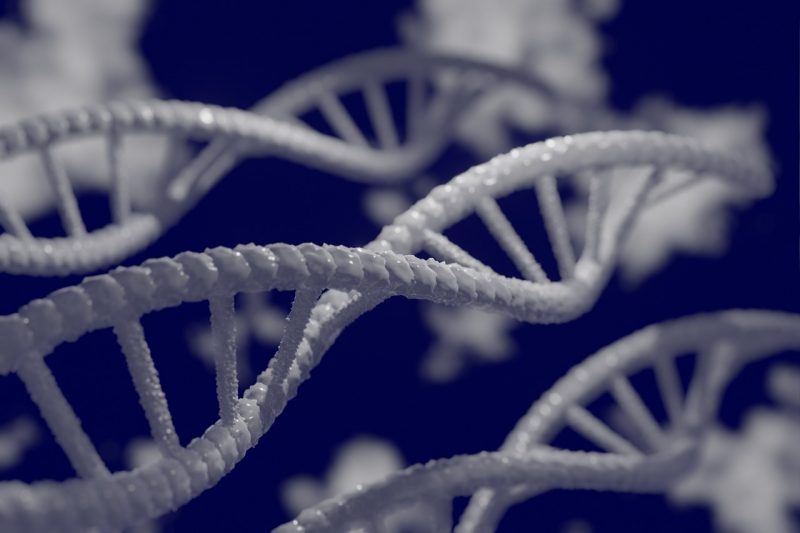
The world of science and technology may witness a future revolution fueled by the convergence of quantum computing and genetics. This unlikely pairing holds immense promise, offering a glimpse into the future of bioinformatics, genetic data storage, and genetic research. As quantum computing accelerates into reality, its interactions with genetics are poised to reshape our understanding of life itself.
A Quantum Leap into Genetics
The field of genetics, which deals with the study of genes, heredity, and genetic variation, may be intricately connected to quantum computing in the future. One of the most promising applications lies in the analysis of DNA sequences. Traditional methods for analyzing genetic data are computationally intensive and often limited in their scope. Quantum computers can potentially accelerate DNA sequence alignment, phylogenetic tree construction, and identification of genetic markers associated with diseases. These computational advances can lead to significant health benefits, such as faster disease screening, more personalized medicine, and even the possible eradication of certain genetic diseases.
Furthermore, the ability of quantum computers to simulate molecular interactions and folding at a quantum level could lead to a deeper understanding of protein structures and drug interactions. This may revolutionize drug discovery and development, leading to more precise and effective treatments. Already companies like Polarisqb, ODE L3C, and Quantinuum are working to leverage quantum computing processes to simulate and test certain molecular compounds. Their work could be influential in the future of accelerating drug development.
Bioinformatics and Quantum Computing
Bioinformatics, the field that bridges biology and data science, also stands to gain significantly from the synergy between quantum computing and genetics. Large-scale genomic data analysis, which is central to understanding diseases and personalized medicine, is a computational challenge that quantum computers are well-suited to tackle. These analyses are a core component for various organizations, from the Human Genome Project to companies like 23andMe. As quantum computers could process and analyze vast amounts of genomic data much faster than classical counterparts, they may be potentially unlocking hidden patterns and insights. Tasks such as sequence alignment, variant calling, and identifying genetic mutations could become quicker and more accurate, enabling researchers to make informed decisions with far-reaching implications for medical science.
Challenges on the Horizon
While the potential benefits of quantum computing in genetics and bioinformatics are vast, there are challenges that need to be addressed. Quantum computers are still in their infancy, with issues like qubit stability and error correction posing significant obstacles, which many quantum computing companies are working to overcome. Developing algorithms that can harness the power of quantum computing for genetic analysis also requires substantial research and development. Moreover, integrating quantum computing solutions into existing workflows and infrastructures in genetics and bioinformatics will require careful planning and adaptation.
A Quantum Future for Genetics?
The interactions between quantum computing and genetics may mark the dawn of a new era in scientific discovery. The synergy between these seemingly disparate fields holds the potential to revolutionize our understanding of genetics and bioinformatics. As quantum computing matures and its capabilities grow, we can expect to see transformative breakthroughs that will reshape medical research, drug development, and our comprehension of the intricacies of life.
While challenges persist, the promise of unlocking previously unattainable insights and capabilities through the marriage of quantum computing and genetics remains a tantalizing prospect. As researchers continue to explore this intersection, the world eagerly anticipates the next chapter in the story of science’s great convergence.
Kenna Hughes-Castleberry is a staff writer at Inside Quantum Technology and the Science Communicator at JILA (a partnership between the University of Colorado Boulder and NIST). Her writing beats include deep tech, quantum computing, and AI. Her work has been featured in Scientific American, New Scientist, Discover Magazine, Ars Technica, and more.
- SEO Powered Content & PR Distribution. Get Amplified Today.
- PlatoData.Network Vertical Generative Ai. Empower Yourself. Access Here.
- PlatoAiStream. Web3 Intelligence. Knowledge Amplified. Access Here.
- PlatoESG. Automotive / EVs, Carbon, CleanTech, Energy, Environment, Solar, Waste Management. Access Here.
- PlatoHealth. Biotech and Clinical Trials Intelligence. Access Here.
- ChartPrime. Elevate your Trading Game with ChartPrime. Access Here.
- BlockOffsets. Modernizing Environmental Offset Ownership. Access Here.
- Source: https://www.insidequantumtechnology.com/news-archive/inside-quantum-technologys-inside-scoop-quantum-and-genetics/
- :has
- :is
- 11
- 2023
- 7
- a
- ability
- accelerate
- accelerates
- accelerating
- accurate
- adaptation
- advances
- AI
- algorithms
- alignment
- already
- also
- American
- amounts
- Analyses
- analysis
- analyze
- analyzing
- and
- applications
- ARE
- AS
- associated
- At
- Aug
- BE
- become
- been
- benefits
- between
- biology
- breakthroughs
- bridges
- by
- calling
- CAN
- candidate
- capabilities
- careful
- central
- certain
- challenge
- challenges
- Chapter
- Colorado
- Companies
- component
- computers
- computing
- connected
- construction
- continue
- Convergence
- Core
- could
- data
- data science
- data storage
- Deals
- decisions
- deep
- deeper
- Detection
- developing
- Development
- different
- discover
- discovery
- Disease
- diseases
- disparate
- dna
- drug
- eagerly
- Effective
- enabling
- Era
- Even
- existing
- expect
- explore
- far-reaching
- faster
- featured
- field
- Fields
- For
- Forbes
- from
- fueled
- future
- Gain
- Genetics
- Glimpse
- great
- Grow
- harness
- Health
- her
- Hidden
- holds
- HTML
- HTTPS
- Identification
- identifying
- image
- immense
- implications
- in
- include
- Influential
- informed
- infrastructures
- inside
- Inside Quantum Technology
- insights
- Integrating
- interactions
- intersection
- into
- intricacies
- issues
- ITS
- itself
- jpg
- large-scale
- lead
- leading
- Leap
- Level
- Leverage
- lies
- Life
- like
- Limited
- magazine
- make
- many
- mark
- matures
- max-width
- May..
- medical
- medical research
- medicine
- methods
- molecular
- more
- Moreover
- most
- much
- Nature
- Need
- needs
- New
- next
- nist
- obstacles
- of
- offering
- often
- on
- ONE
- organizations
- our
- Overcome
- pairing
- Partnership
- patterns
- perfect
- Personalized
- planning
- plato
- Plato Data Intelligence
- PlatoData
- poised
- possible
- posted
- potential
- potentially
- power
- precise
- previously
- process
- processes
- promise
- promising
- prospect
- Protein
- Quantum
- quantum computers
- quantum computing
- quantum technology
- Qubit
- quicker
- Reality
- remains
- require
- requires
- research
- research and development
- researchers
- Revolution
- revolutionize
- Science
- Science and Technology
- scientific
- Scientist
- scoop
- scope
- screening
- see
- seemingly
- Sequence
- significant
- significantly
- Solutions
- Stability
- Staff
- staff writer
- stands
- Still
- storage
- Story
- Study
- substantial
- such
- synergy
- tackle
- tasks
- tech
- Technology
- test
- than
- that
- The
- The Future
- the world
- their
- There.
- These
- they
- this
- Through
- to
- traditional
- transformative
- tree
- true
- understanding
- university
- unlikely
- unlocking
- Variant
- various
- Vast
- we
- which
- will
- with
- witness
- Work
- workflows
- working
- world
- writer
- writing
- zephyrnet













